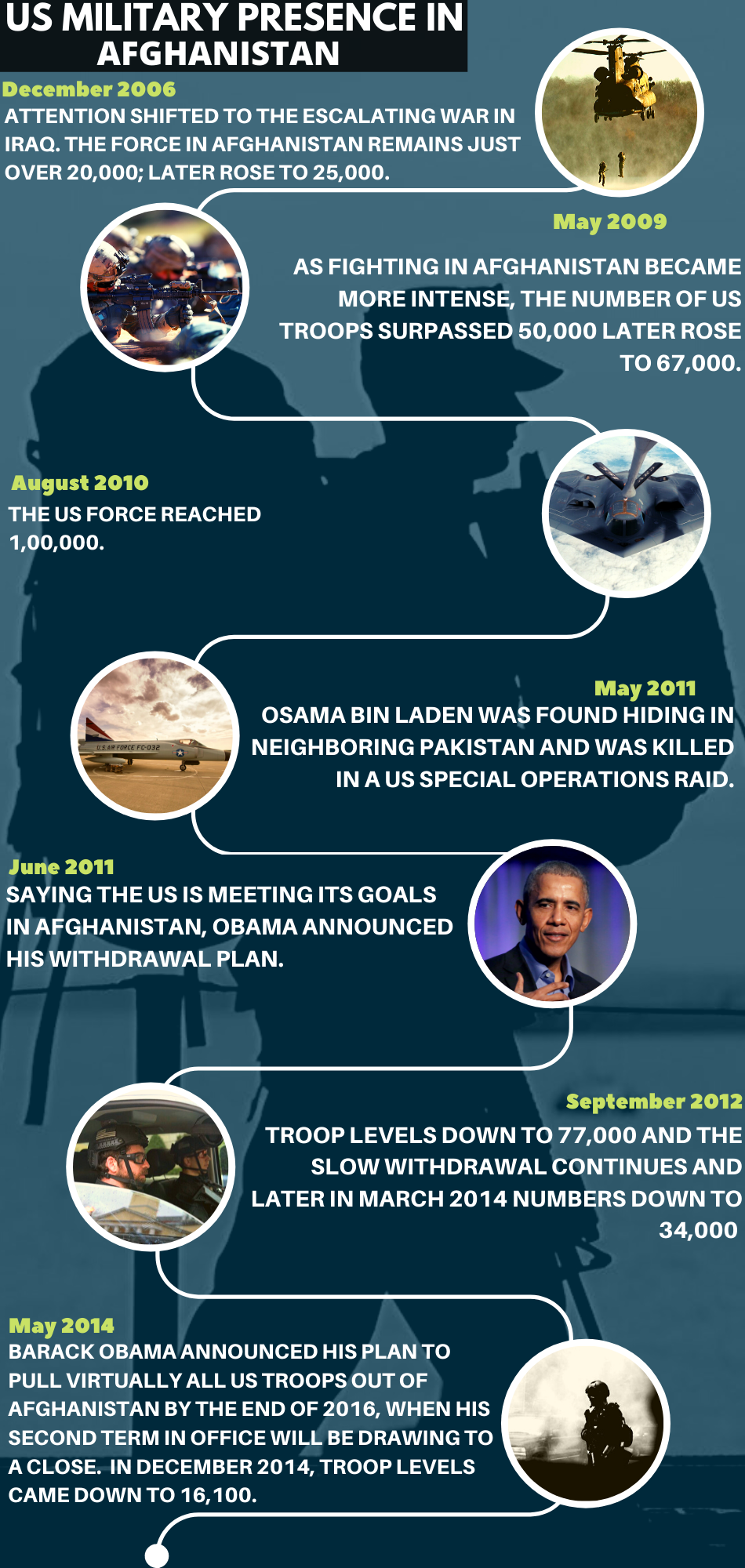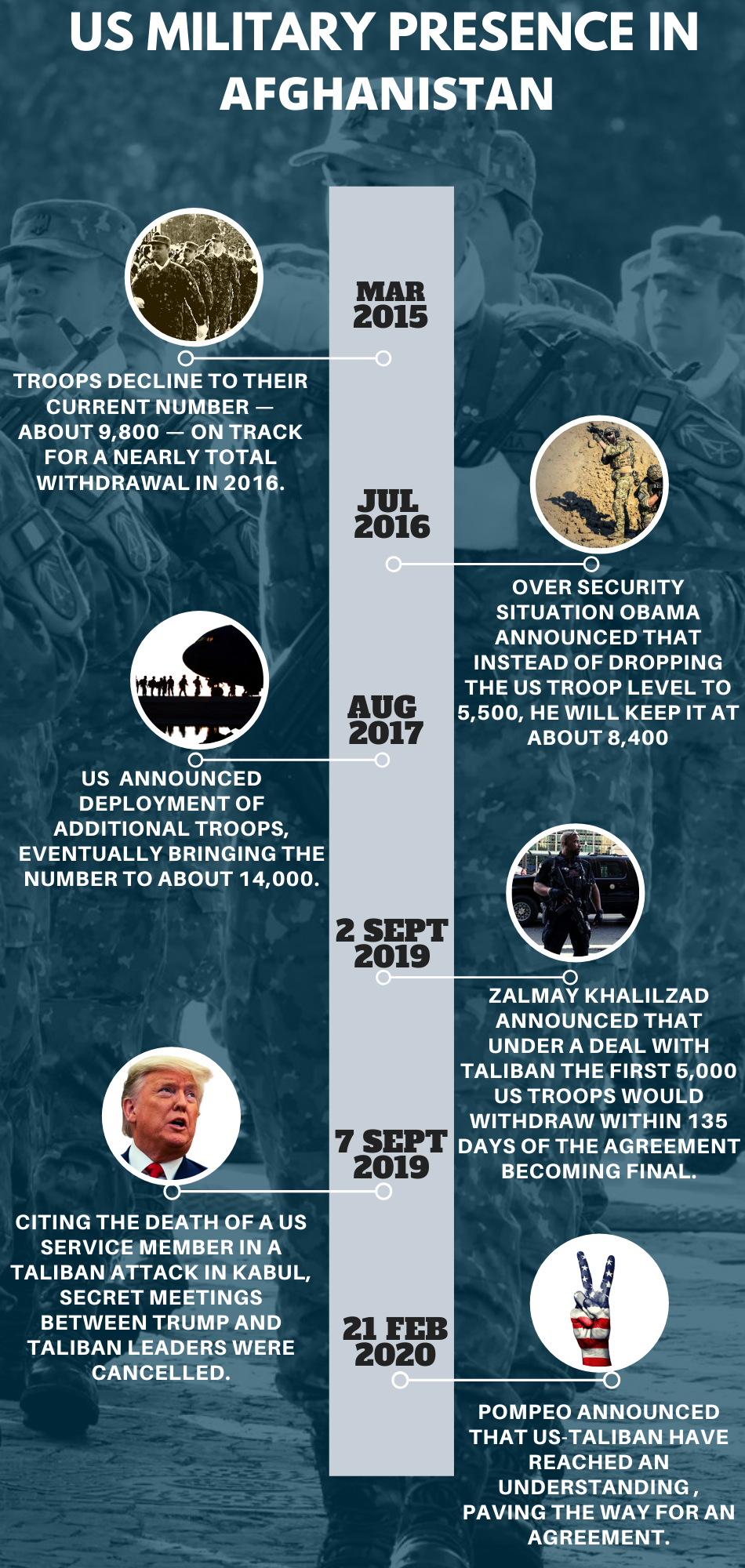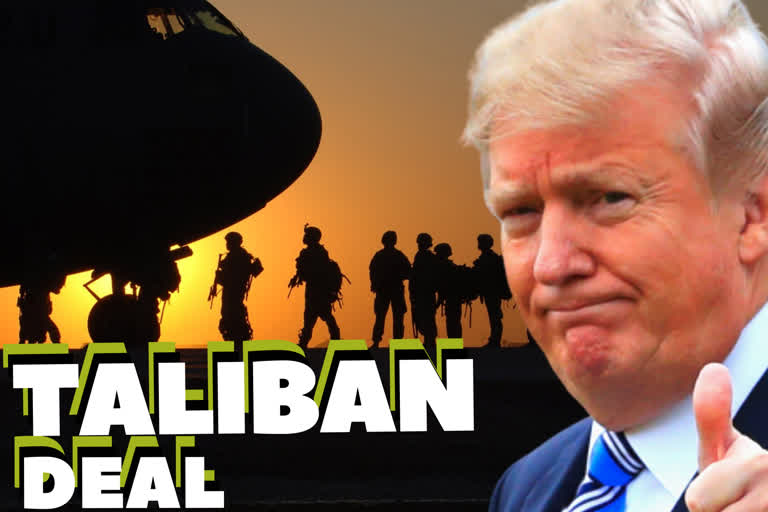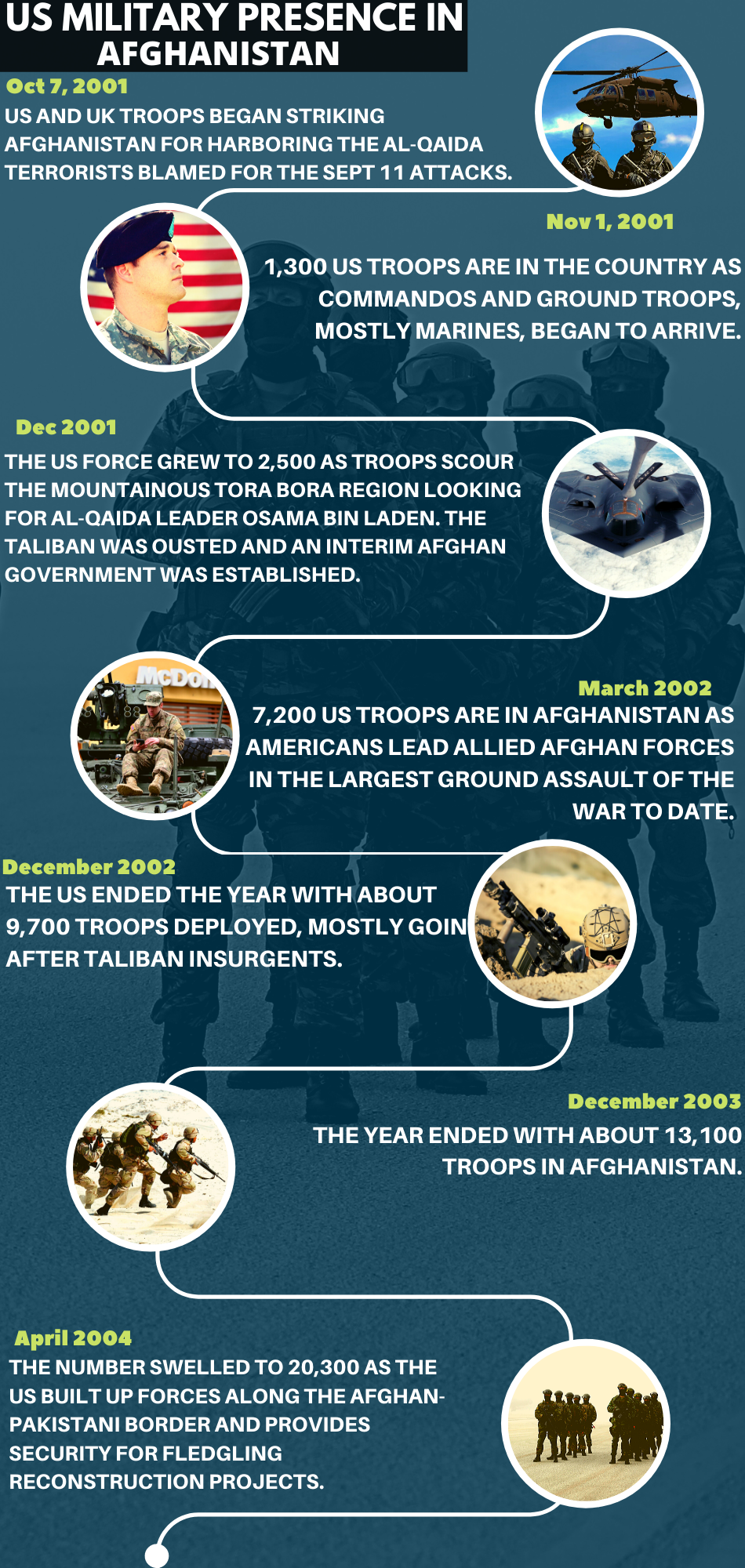Kabul: The US and the Taliban stand on the verge of signing a historic deal that would see the Pentagon pull thousands of troops from Afghanistan.
Here are some details about the accord and its implications for the war-wracked nation:
Have the two sides agreed to a ceasefire? - Not quite, but the Taliban, US and Afghan forces have committed to a partial, week-long truce.
Read also: India supports US-Taliban negotiated peace deal: CDS
This is more significant than it sounds because it is only the second such lull in fighting since the US-led invasion of 2001.
If it holds, Washington and the insurgents are expected to sign a deal in Doha on Saturday that would see thousands of US troops leave Afghanistan after more than 18 years, in return for various security commitments from the Taliban.
Read also: 'Pakistan is interested in pushing Taliban elements into Kashmir', Brig (R) V Mahalingam
News of the truce has sparked joy across Afghanistan, with civilians pouring onto the streets to dance and celebrate the possible end of a conflict that has cost tens of thousands of lives.
But isolated attacks have continued, underscoring the difficulty of securing a permanent respite from bloodshed.
Read also: Taliban say mystery crash in Afghanistan was US aircraft
And details of what exactly the truce means are vague. While the US has said the agreement provides a "significant and nationwide reduction in violence", Afghan forces have vowed to remain "on active defence status" during the week.

Taliban spokesman Zabihullah Mujahid has meanwhile insisted the pause does not amount to "a ceasefire", and said it only covers certain urban and military areas, seemingly leaving open the prospect of violence in remote rural areas.
Fears that competing sides could exploit a lull to secure territorial advantage -- dashing any hopes for peace -- have also surfaced in the run-up to Saturday's meeting.
If the truce is successful, Washington will sign an accord with the Taliban. Under the terms of the deal, Washington is initially expected to reduce troop levels to around 8,600 -- down from the current level of 12,000-13,000.
The remaining forces would stay behind on a "conditions-based" timeline to monitor the overall security situation and fight jihadists such as the Islamic State group. Under their side of the deal, the Taliban have pledged to prevent Afghanistan from being used as a jihadi safe haven where groups can plan attacks on foreign soil. Critics -- including President Donald Trump's close advisor Senator Lindsey Graham -- have voiced deep scepticism that the Taliban can be trusted to act against terror groups.

Nonetheless, if all goes well, the US troop presence could ultimately go down to zero -- though few observers expect that to happen any time soon.
The US and the Taliban have been tantalisingly close to a deal before, only to see Trump nix it at the eleventh hour. - What happens next? -
The key to a lasting peace depends largely on the outcome of talks between the Taliban and the Afghan government, rather than between the insurgents and Washington. Any such "intra-Afghan" agreement is expected to take years, analysts said.
Infighting between key political figures may also scupper chances of an agreement.
With President Ashraf Ghani and rival Abdullah Abdullah at loggerheads over contested election results, few expect the pair to bury the hatchet and present a united front.
"It remains difficult to see President Ghani presenting a delegation that would be accepted by all strata of Afghan society, particularly the political opposition," policy analyst Mariam Safi told AFP.
Further bickering would likely weaken Kabul's position and allow the insurgents to take the upper hand in negotiations, with grim implications for Afghanistan's nascent democracy.
With inputs from PTI




